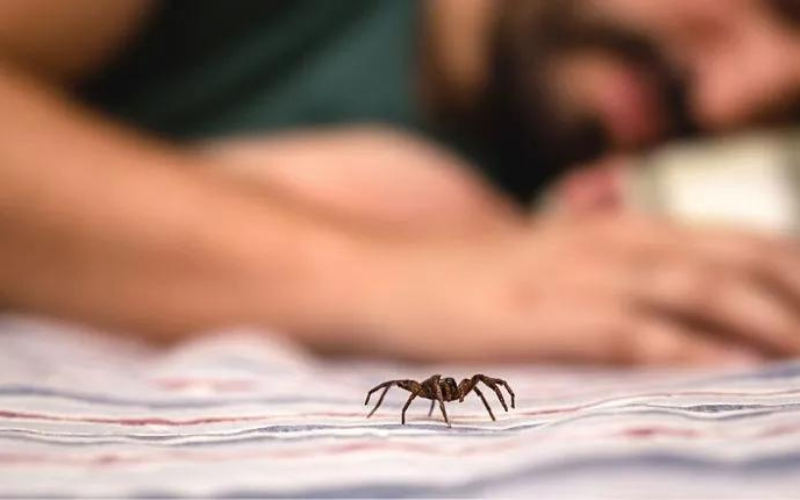Encountering a spider near your bed can be unsettling, prompting concerns about safety and comfort while sleeping. The decision to sleep in a bed near a spider largely depends on individual comfort levels and the perceived risk associated with the spider’s presence. Assessing the type of Sleeping Near a Spider, its behavior, and potential risks it poses can help make an informed choice. For some, the mere sight of a spider might not be a cause for alarm, while others might feel uneasy sharing their sleeping space. If comfortable, gently relocating the spider or creating a clean sleeping environment may provide reassurance, but if anxiety persists, seeking help or removing the spider might be preferable for a peaceful night’s sleep. Ultimately, personal comfort and peace of mind are key factors in deciding whether to sleep in a bed near a spider.
leaving you with the dilemma of whether it’s safe to sleep in the same vicinity. Understanding the risks, benefits, and necessary precautions when dealing with spiders near your sleeping area is crucial for making an informed decision without compromising your comfort or safety.
Assessing the Situation: Identifying the Spider
The first step is to identify the spider if possible. Not all spiders are harmful, and many are harmless to humans. Knowing the type of spider can help determine the level of threat it poses. If you’re uncertain about the species, consider seeking advice from a pest control professional or using online resources to identify it.
Understanding Spider Behavior and Risks
Most spiders prefer to avoid humans and are unlikely to bite unless provoked or threatened. However, some species, such as certain types of recluse or widow spiders, can pose a risk with their venomous bites. Assessing the potential danger based on the spider’s behavior and species can help determine the level of risk associated.
Implementing Preventative Measures
If you’re uncomfortable sharing your sleeping space with a spider, consider relocating it using non-lethal methods. Use a cup and piece of paper to capture the spider gently and release it outside, away from your sleeping area. Avoid squashing the spider as this can attract other pests or release toxins.
Maintaining a Clean Sleeping Environment
Regularly clean and declutter your sleeping area to minimize the chances of spiders or other pests making themselves at home. Vacuuming, dusting, and sealing entry points can help prevent spiders from entering your bedroom in the first place.
Considerations for Arachnophobes
For individuals with a severe fear of spiders (arachnophobia), the presence of a spider near the bed can cause significant distress and anxiety. In such cases, it might be beneficial to seek assistance from a friend or professional to remove the spider or take measures to ease anxiety before bedtime.
Safety Measures and Peace of Mind
If the spider has been removed or relocated and you feel comfortable, consider taking additional safety measures, such as using bed nets or sealing gaps and cracks in the room to prevent future spider encounters. These precautions can provide peace of mind while sleeping.
Conclusion: Sleeping Near a Spider – Making an Informed Choice
In conclusion, the decision to sleep near a spider depends on various factors, including the type of spider, personal comfort levels, and potential risks. Most spiders are harmless, but for those who are concerned or uncomfortable, taking proactive steps to remove the spider, maintain a clean environment, and implement preventative measures can offer reassurance and ensure a good night’s sleep.
Ultimately, whether to sleep in a bed near a spider is a personal decision. Assess the situation, consider the risks, and take appropriate actions based on your comfort level and knowledge of spider behavior to ensure a restful and worry-free sleep.




